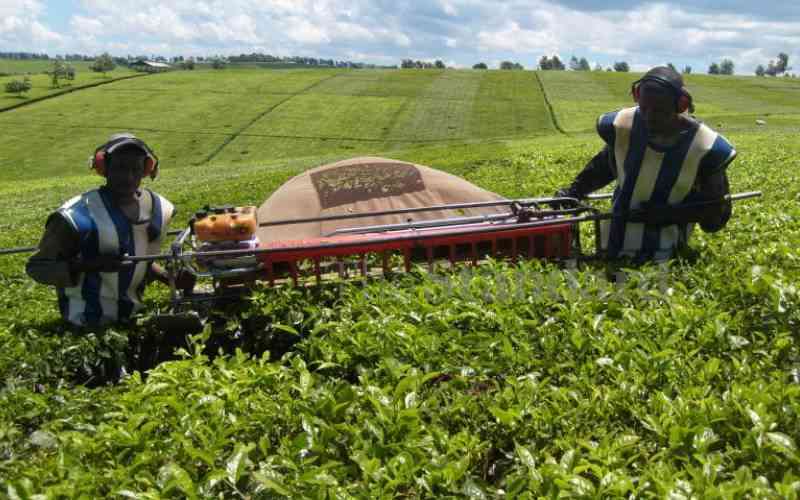×
The Standard e-Paper
Home To Bold Columnists

A section of elected leaders in the South Rift has an uphill task in convincing multinational companies to abandon tea plucking machines, which was part of their campaign promises.
It is a situation that has left the voters in a 'wait and watch' approach', given that the appellate court had made its pronouncement on the matter by upholding a High Court decision that gave the companies the green light to continue using the machines.